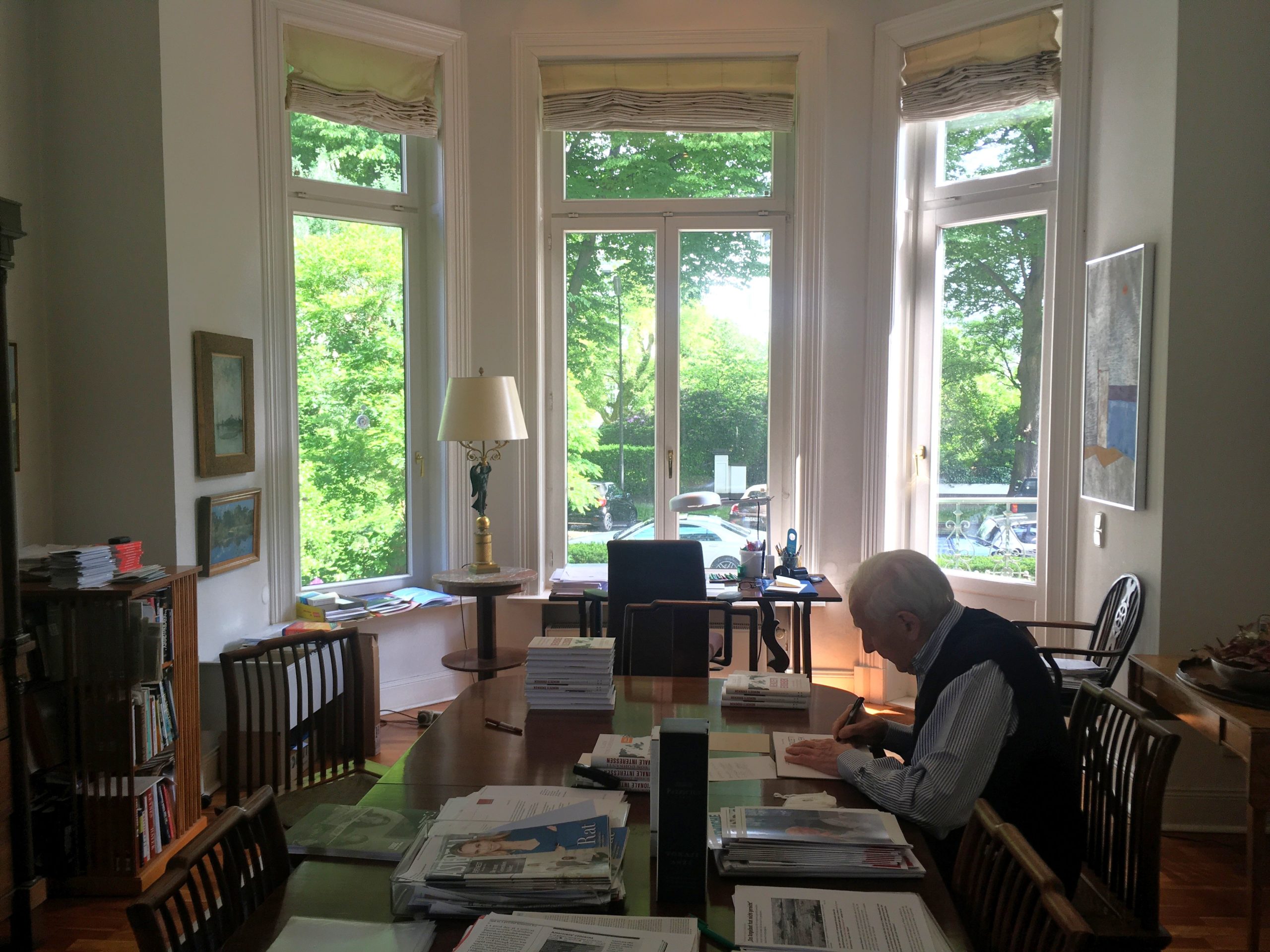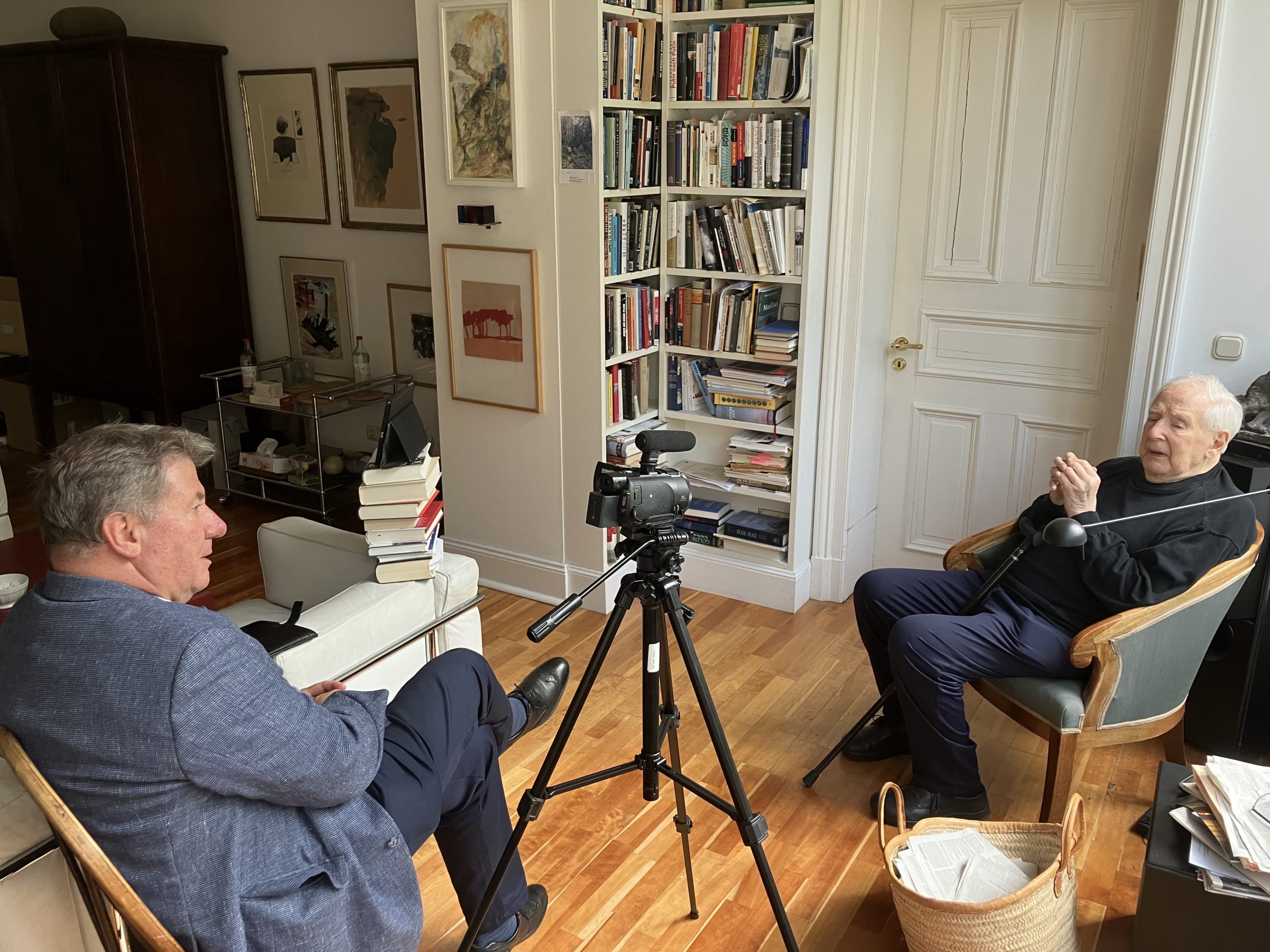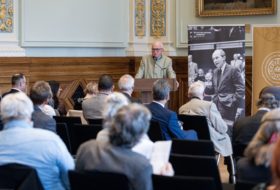In preparation for our conference commemorating the 110th anniversary of Franz Josef Strauss’s birth, we sought to invite not only historians and academic experts but also contemporaries whose personal recollections would contribute to the success of the event. In addition to Strauss’s close associates and fellow conservatives, we also considered it particularly valuable to approach Klaus von Dohnányi, the last living minister from Willy Brandt’s cabinet and a long-standing friend of our Foundation, who had earlier served as State Secretary for Economic Affairs in the grand coalition government led by Kurt Georg Kiesinger (1966–1969).
The 97-year-old veteran Social Democratic politician, whose book National Interests: Guidance for German and European Policy in an Era of Global Changes we published three years ago, received Bence Kocsev and Gergely Prőhle in his home. In the video message they recorded for the conference, the host spoke about his relationship with Strauss and its rather fateful beginnings: when the family of composer Ernő Dohnányi’s son, Hans von Dohnányi, who the Nazis executed, – his wife, Christine Bonhoeffer, and their three children, including 18-year-old Klaus – arrived in Bavaria, the young local politician, later Bavarian Minister-President Franz Josef Strauss, provided them with housing in Schongau.
Dohnányi praised Strauss’s pragmatism during the grand coalition years, when Strauss served as Federal Minister of Finance, and recalled the joint efforts with his boss, Karl Schiller – the legendary Social Democratic Minister for Economic Affairs – to overcome the recession, thereby giving the German economy new momentum. Quoting from Strauss’s book on European integration verbatim from memory, Dohnányi reminded us that already in the late 1960s, in response to the pressing challenge of Europe’s competitiveness, they had forged close cooperation, sometimes even with their fiercest market rivals. Such collaboration led to the founding of the aircraft manufacturer, Airbus, which remains the only truly globally competitive major European enterprise to this day. Klaus von Dohnányi concluded his reflections on Strauss’s life and legacy with the words:
“Germany would be inconceivable without Bavaria, and Bavaria without Strauss.”





